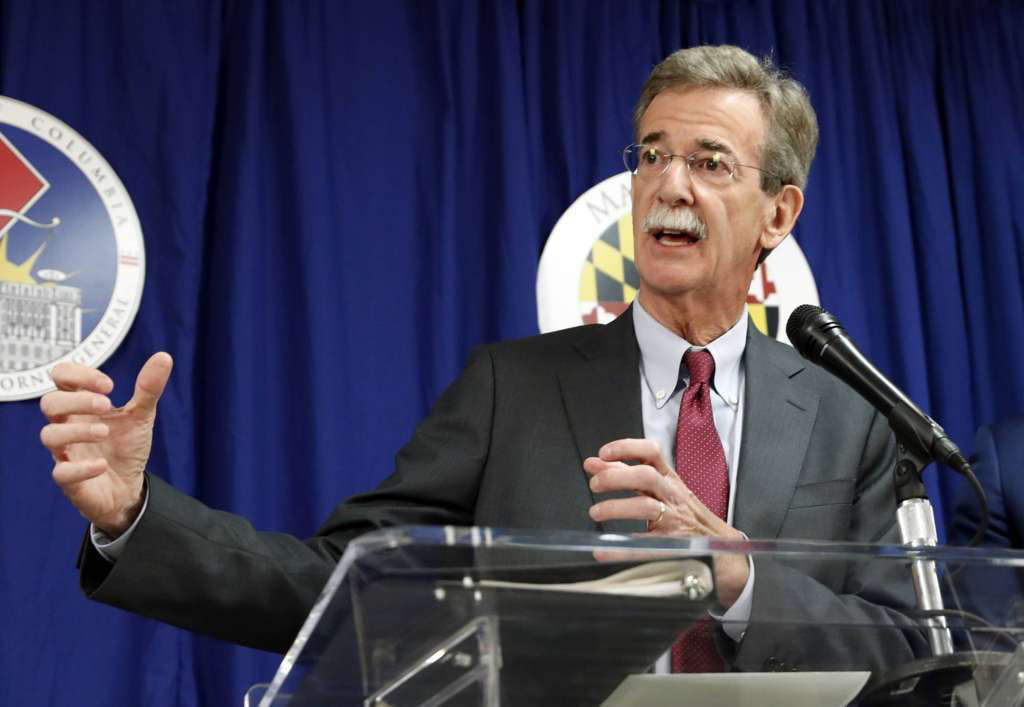
Maryland Attorney General Brian Frosh said Gov. Larry Hogan’s directive to hold in-person voting on Election Day “unnecessarily puts voters’ lives and the lives of poll workers at risk.”
In a news release issued Friday, Frosh said that Hogan’s plan, to hold a traditional election, where voters go to the polls to cast their ballots, means that thousands of poll workers, as well as voters, would be endangered because of the threat posed by exposure to the coronavirus.
“We are in the middle of a pandemic that is burning out of control,” Frosh said.
Frosh’s statement suggested that Hogan’s decision amounted to “bowing” to President Donald Trump’s “reckless demands” for in-person voting on Nov. 3.
Hogan’s plans also include having boards of elections send out applications for absentee ballots to all eligible Maryland voters.
Frosh said ballots should be sent directly to voters instead, effectively holding a vote-by-mail election.
“Gov. Hogan’s plan does not enhance voting options. It takes voting options away from Marylanders. Indeed, it threatens to suppress the votes of hundreds of thousands of our citizens,” Frosh said.
When asked to respond to Frosh’s comments, Hogan spokesman Michael Ricci said in an email that the governor’s plan would not limit Maryland residents’ ability to vote.
“Brian Frosh is now suggesting that we ignore our election laws, limit options for voters, and suppress the vote by closing polling precincts,” Ricci said. “We will do none of that. We will follow the law, and actively encourage early voting, absentee voting-by-mail, and voting at off-peak times as safe and efficient options for voters.”
Legislative leaders have said they are concerned if local boards of elections would be able to process the applications for absentee ballots on time.
Maryland state senate President Bill Ferguson and House Speaker Adrienne Jones commented on the issue in a joint statement earlier this week.
In the report on options for conducting the Nov. 3 election, the Maryland State Board of Elections listed several challenges in conducting in-person voting, including finding enough poll workers “willing to serve in the midst of a public health emergency.”
The report anticipates the difficulty of securing enough polling places, stating that many could become unavailable depending on the course of the pandemic.
It also listed disadvantages to offering limited in-person voting with a vote-by-mail option. Concerns included the misdelivering of ballots or a high number of voters deciding not to mail their ballot. Lines at voting centers could be long and result in extended waiting periods at the polls.
After Hogan sent the State Board of Elections his directive, the board said in a statement that it will go ahead with the plan and expand efforts to promote voting by mail, early voting and voting at off-peak hours.
“The board will continue to work closely with local boards of elections, stakeholders, and the general public to conduct a safe and accessible general election,” the statement said.








